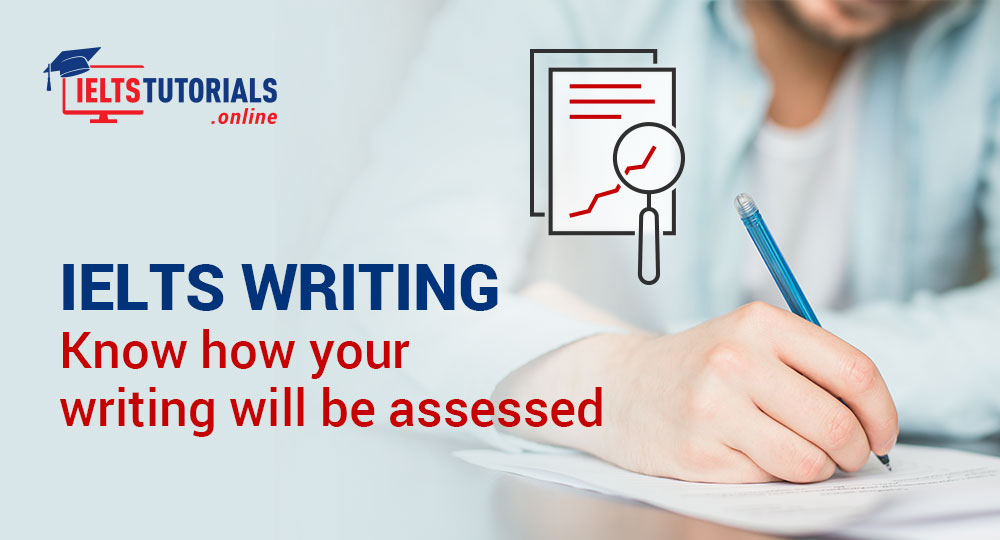
IELTS Writing Task 2: What Are the Various Assessment Criterion?
IELTS Writing can be quite tricky if you are looking for various methods to lift your score from Band 5 to Band 7+. Many times students refer to random study materials and create more confusion for themselves. In particular, IELTS Writing Task 2 holds immense importance and making some common (avoidable) mistakes can lead you on losing out on a 7+ Band score.
You must check all the following and easy tips to know what it takes to excel in the IELTS Writing Task 2.
IELTS Writing Test has two tasks: IELTS Writing Task 1 and IELTS Writing Task 2.
IELTS Writing Task 1- Describe image- It judges the test takers by their ability to describe facts/figures presented in graphs, charts, tables, or letters.
IELTS Writing Task 2- Essay Writing- It tests aspirants on their ability to write on a given topic in a semi-formal or neutral style.
IELTS Writing Task 2: Assessment Criteria
The evaluation for both the tasks depends on four specific criteria that an examiner evaluates your paper on, which are as follows:
- Task Response
- Coherence & Cohesion
- Lexical Resource
- Grammatical Range & Accuracy
Task Response
Task Response evaluates a candidate on the comprehension and response skills to a given task. Successful completion of this assessment criteria requires you to cover every aspect of the given question, and not miss out on any part of it. Its requirements include covering some generalized information which is included in the Introduction Paragraph and you need to give your viewpoint as well.
Further, to support your point, you need to provide enough information about the given topic. This information should be covered in the second and third paragraphs. Try adding examples or illustrations supporting your claim and if asked, provide a little information about ‘if you do not agree with the question’.
Most important, do not ignore to include all the sub-points mentioned in the question, otherwise, this will result in deduction of scores.
The output tone in the IELTS Writing Task 2 can be casual yet professional at the same time while maintaining good English grammar, and vocabulary.
For instance, if the question asks for the aspirant's opinion, then he/she should give it, without hesitation.
To achieve this, you must:
- Take some time to read all the instructions carefully.
- Support general statements with evidence leading to a logical conclusion.
- Spend some time thinking about the structure and the flow of your essay.
Coherence & Cohesion
To score better on Coherence & Cohesion, you should learn the skill of creating a logical flow between two paragraphs, and coherently charting out the flow of your ideas. The information should be extremely clear and readable. There should be clarity in the progression of your idea throughout the task.
- It is always better to present a clear central topic or idea in every paragraph.
- The paragraphs should be well-demarcated for the evaluator to understand.
- Avoid redundancy or the repetition of the same ideas throughout your answers.

Lexical Resource
The lexical resource is nothing but your vocabulary. This section tests your vocabulary, language, command over lexical features, choice of words, and clarity. Ensure you use various sentence types in the IELTS Writing Task 2. The invigilator needs to identify that you are comfortable with complex sentences as well.
- To ace this section, the test-taker should use a good vocabulary.
- Test-takers must demonstrate great control of lexical features.
- Work on enhancing your vocabulary. Instead of ‘good’, you can use ‘extraordinary’.
- Use describing words to emphasize the information that is vital.
- Avoid spelling errors and sentence-formation mistakes.
- Don't repeat the same words from your vocabulary throughout.
- Use synonyms, or better, plan what words you intend to use right from the beginning.
- Take some time to check your writing to avoid repetitions.
Grammatical Range & Accuracy
This assessment criteria of the IELTS Writing Task 2 assesses your ability to use and understand English grammar. In order for you to do well, you need to have thorough accuracy with punctuations as well as flexibility in sentence structure. The more use of complex sentences, the better the chances of getting higher scores.
Make sure it's something that shows up often! But remember, do not try stuffing it. Be natural while writing your sentences. If you are not getting enough practice on these skills, then take some help from our expert tutors who can provide quality corrections every time!
Here are some tips:
- The candidate should use a wide range of sentence structures.
- Avoid errors and inappropriate usage.
- Don't commit errors within your sentences
- Take care of your grammar and punctuation.
Must Read -
11 Simple Tips To Ace IELTS Essay Writing Task
Conclusion
IELTS Writing Task 2 holds high importance in the test. It is not an unachievable task; all you need is the right practice! If you want to get your papers verified and corrected, you can avail the correction services and download the IELTS Tutorials Exam Practice App.
With an extensive collection of sample question and model answers, you can enhance your writing skills, and can also take the benefit of IELTS writing correction services.
IELTS Writing App is a free and self-preparation guide that boosts your skills entirely and upgrades your performance to achieve the desired score in the exam.
If you need any other help or have a query, do reach out to us
We are always happy to help!
All the Best!